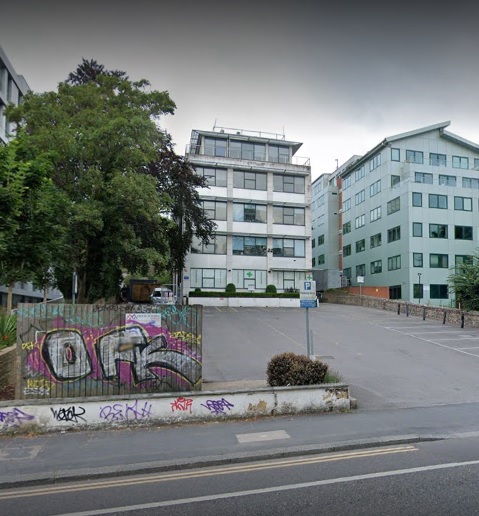
The House of Commons yesterday voted 297 to 110, majority 187, in favour of an amendment to the Public Order Bill in a bid to create “buffer zones” around clinics and hospitals offering abortions.
The MSI clinic opposite Preston Park has been targeted in recent months by anti-abortion protest group 40 Days of Life, which aims to ban abortion in the UK.
Louise McCudden MSI Reproductive Choices’ UK advocacy and public affairs advisor said: “Today’s vote marks a huge victory for reproductive rights.
“This will protect over 100,000 women a year, who will finally be able to access the healthcare to which they are legally entitled free from intimidation and harassment.
“For decades, our teams around the country have been forced to witness the cruel tactics of anti-abortion groups who have had a free pass to harass people attending our clinics, invade their space and attempt to block their right to healthcare.
“This landmark decision marks the culmination of years of inspirational campaigning by groups across the country and we are incredibly grateful to all the MPs who supported this amendment.
“At long last, everyone will have the right to access vital reproductive healthcare with safety, dignity, and privacy, no matter where in the country they happen to live.”
If the bill is passed, the amendment will make it an an offence to interfere, intimidate or harass women accessing or people providing abortion services.
Those convicted could face up to six months in jail for a first offence or two years for further offences.
A buffer zone would apply to an area which is within 150 metres from any part of an abortion clinic or access point to any building or site that contains an abortion clinic.
MPs were given a free vote on the matter. All of the city’s MPs, Peter Kyle, Caroline Lucas and Lloyd Russell-Moyle, voted in favour.
Labour MP Stella Creasy (Walthamstow), who moved the amendment, earlier said the change would “not stop free speech on abortion”.
She told the Commons: “It simply says that you shouldn’t have a right to do that in the face of somebody – and very often these people are right up in front of people – at a point when they have made a decision.”
Ms Creasy added that 50 clinics have been targeted by protesters but only five have managed to get public spaces protection orders (PSPOs), designed to prevent specified things being done in a restricted area.
Senior Tory MP Sir Bernard Jenkin backed the change as he said the Government’s current policy meant “women should be harassed outside abortion clinics before” a protection order can be implemented.
But fellow Conservative Fiona Bruce said the buffer zone proposal has “grave implications, indeed threats, to freedom of thought, conscience, speech, belief and assembly”.
She said: “It has implications far more widely than on abortion alone. It potentially criminalises even those who simply peaceably stand near abortion clinics and who do so mainly on the basis of their faith-based beliefs.”
Although she acknowledged harassment and intimidation around abortion clinics “has to be addressed”, she said there are existing laws and “there have been relatively few if any reports of this”.
The Bill as a whole attempts to crack down on disruptive protests.
It includes a new offence of obstructing major transport networks, interfering with key national infrastructure – such as railways, roads and printing presses – and new powers for police to stop and search people to seize items intended for so-called locking-on.
Lock-on tactics have been repeatedly employed by groups such as Insulate Britain and Just Stop Oil, and include protesters gluing or otherwise attaching themselves to roads or other areas to cause disruption.
MPs voted 283 votes to 234, majority 49, to give the Bill a third reading, with Conservative MPs David Davis, Sir Charles Walker and William Wragg rebelling to oppose it.
It will undergo further scrutiny in the House of Lords at a later date.








